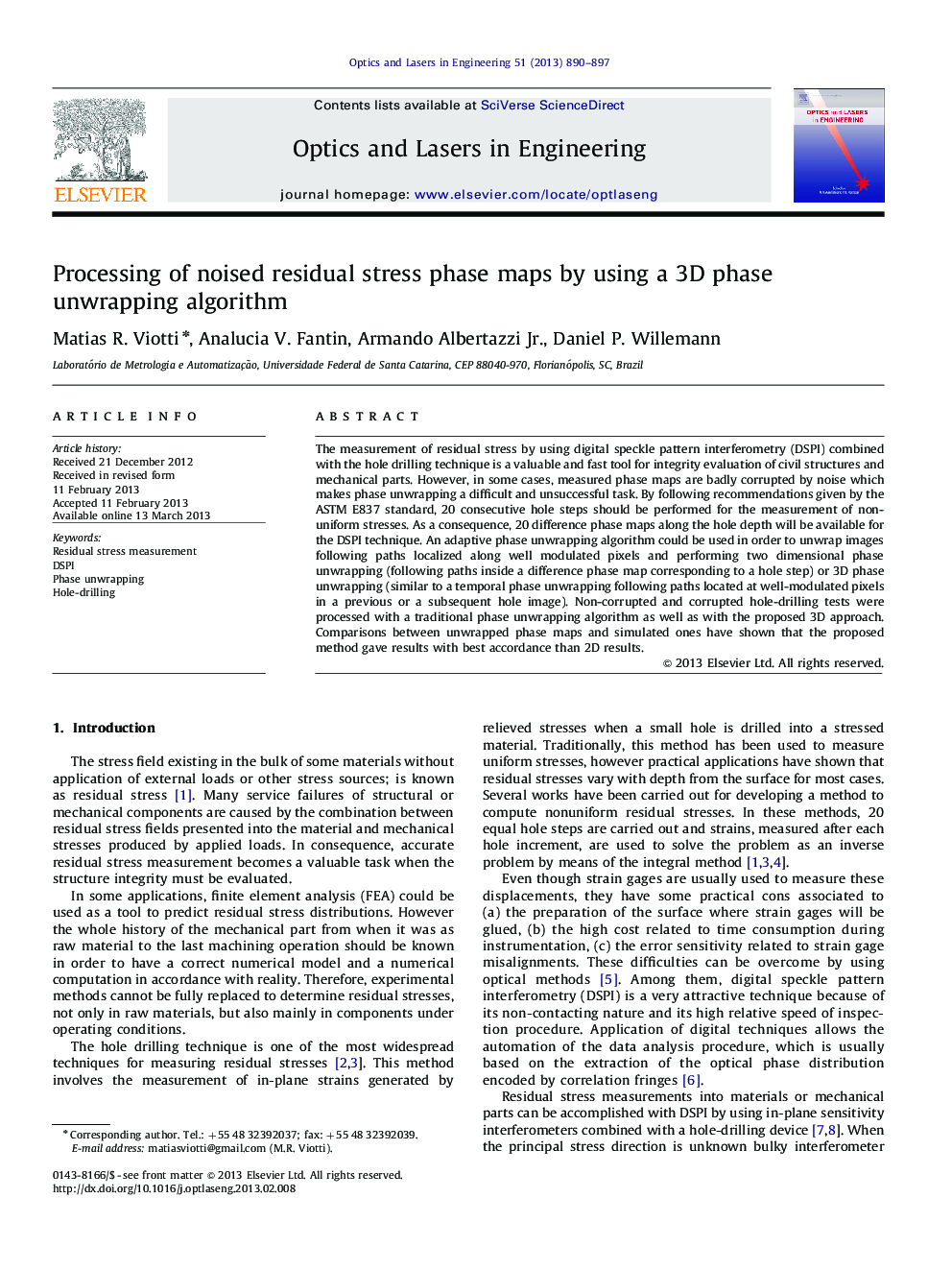| Article ID | Journal | Published Year | Pages | File Type |
|---|---|---|---|---|
| 735686 | Optics and Lasers in Engineering | 2013 | 8 Pages |
The measurement of residual stress by using digital speckle pattern interferometry (DSPI) combined with the hole drilling technique is a valuable and fast tool for integrity evaluation of civil structures and mechanical parts. However, in some cases, measured phase maps are badly corrupted by noise which makes phase unwrapping a difficult and unsuccessful task. By following recommendations given by the ASTM E837 standard, 20 consecutive hole steps should be performed for the measurement of non-uniform stresses. As a consequence, 20 difference phase maps along the hole depth will be available for the DSPI technique. An adaptive phase unwrapping algorithm could be used in order to unwrap images following paths localized along well modulated pixels and performing two dimensional phase unwrapping (following paths inside a difference phase map corresponding to a hole step) or 3D phase unwrapping (similar to a temporal phase unwrapping following paths located at well-modulated pixels in a previous or a subsequent hole image). Non-corrupted and corrupted hole-drilling tests were processed with a traditional phase unwrapping algorithm as well as with the proposed 3D approach. Comparisons between unwrapped phase maps and simulated ones have shown that the proposed method gave results with best accordance than 2D results.
► A robust and alternative way capable to unwrap successive phase distributions is presented. ► The algorithm computes phase distributions in residual stress measurements with noised maps. ► It also allows extracting information form measurements which are not able to repeat. ► The algorithm performs three dimensional phase unwrapping.
